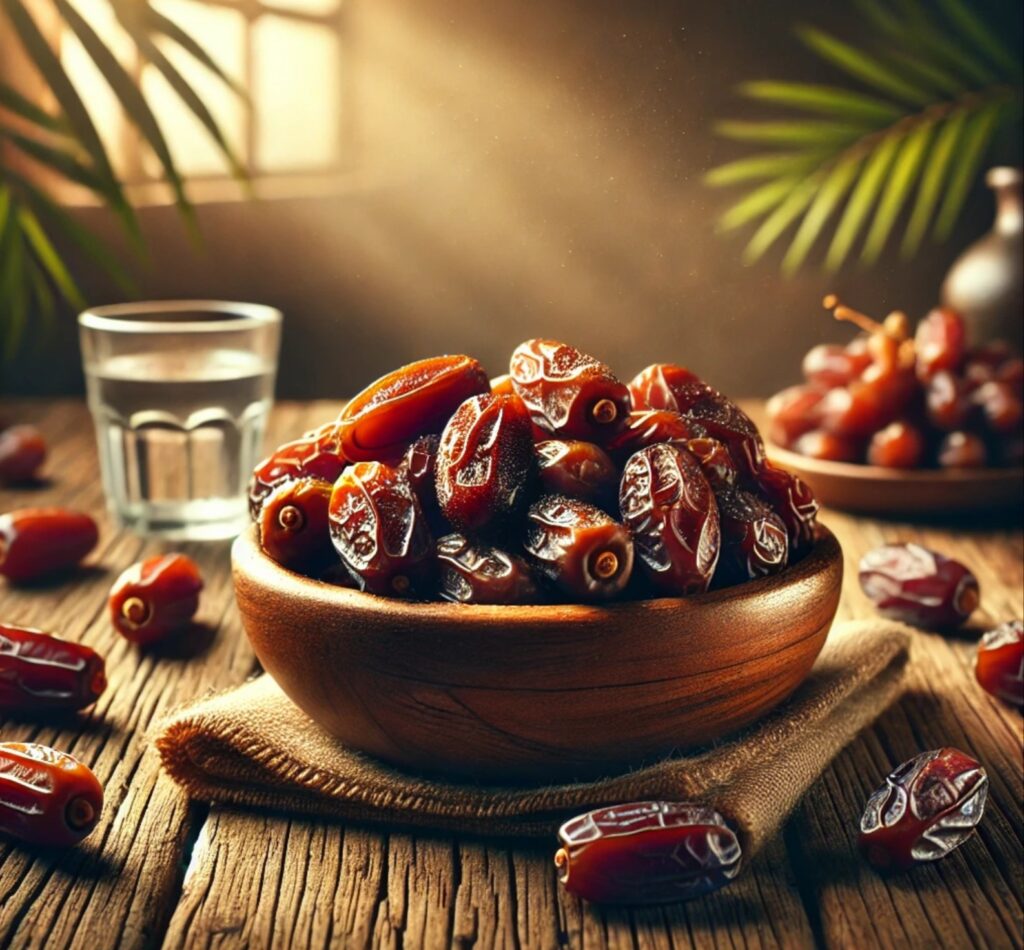Cancer remains one of the leading causes of death worldwide, with colon and stomach cancers being among the most prevalent. The search for dietary components with chemopreventive properties has led to the investigation of various fruits and plant-based foods. One such fruit that has gained attention in recent years is the date (Phoenix dactylifera). Dates are known for their rich nutrient profile, high fiber content, and abundance of bioactive compounds, all of which contribute to their potential role in preventing gastrointestinal cancers.
This article provides a comprehensive review of the scientific literature on how dates may contribute to the prevention of colon and stomach cancer. It will cover the nutritional composition of dates, their bioactive compounds, mechanisms of action, and relevant clinical and epidemiological studies.
Nutritional Composition of Dates
Dates are a staple fruit in Middle Eastern and North African diets, commonly consumed fresh or dried. Their nutritional profile includes:
- Carbohydrates: Dates contain about 70–80% carbohydrates, mostly in the form of natural sugars (glucose, fructose, and sucrose), providing a quick source of energy.
- Dietary Fiber: A significant component, dates contain both soluble and insoluble fiber, which plays a crucial role in gut health and cancer prevention.
- Proteins and Amino Acids: Though low in protein, dates contain essential amino acids that contribute to various metabolic processes.
- Vitamins: Dates are rich in vitamin B-complex (B1, B2, B3, B6), vitamin A, and vitamin K, which support overall health.
- Minerals: Dates provide essential minerals such as potassium, magnesium, calcium, phosphorus, iron, and zinc, all of which contribute to cellular functions and antioxidant defense.
- Polyphenols and Flavonoids: Dates contain high levels of polyphenols, including flavonoids, carotenoids, and phenolic acids, which exhibit strong antioxidant and anti-inflammatory properties.
Bioactive Compounds in Dates and Their Anticancer Properties
Dietary Fiber and Its Role in Colon Cancer Prevention
One of the most well-established factors in colon cancer prevention is a high-fiber diet. Dietary fiber benefits the colon in several ways:
- Increased Bowel Movement: Fiber adds bulk to the stool, reducing transit time and minimizing exposure of the colon lining to potential carcinogens.
- Fermentation by Gut Microbiota: The fiber in dates is fermented by gut bacteria, producing short-chain fatty acids (SCFAs) such as butyrate, which have been shown to inhibit the growth of colon cancer cells and promote apoptosis (programmed cell death).
- Binding of Carcinogens: Fiber binds to carcinogenic compounds in the intestines, preventing their absorption and reducing their potential to cause DNA damage.
Antioxidant Properties of Dates in Cancer Prevention
Oxidative stress, caused by an imbalance between free radicals and antioxidants, plays a significant role in cancer development. Dates are packed with natural antioxidants that neutralize free radicals and protect DNA from damage.
Key antioxidants found in dates include:
- Flavonoids: These compounds have been shown to reduce inflammation, scavenge free radicals, and inhibit tumor growth.
- Carotenoids: These pigments protect against oxidative stress and have been linked to lower risks of gastric and colorectal cancers.
- Phenolic Acids: These compounds exhibit strong anti-carcinogenic effects by modulating key signaling pathways involved in cell proliferation and apoptosis.
Anti-Inflammatory Effects of Dates
Chronic inflammation is a major driver of cancer development, particularly in the digestive tract. Conditions such as inflammatory bowel disease (IBD) and gastritis are associated with increased risks of colon and stomach cancer.
Studies have demonstrated that date extracts reduce inflammation by inhibiting pro-inflammatory cytokines such as tumor necrosis factor-alpha (TNF-α), interleukin-6 (IL-6), and nuclear factor-kappa B (NF-κB). By suppressing these inflammatory pathways, dates may help reduce the risk of carcinogenesis.
Antimicrobial Properties and Their Role in Stomach Cancer Prevention
Helicobacter pylori (H. pylori) infection is a well-known risk factor for stomach cancer. Dates contain natural antimicrobial compounds that can inhibit the growth of harmful bacteria, including H. pylori.
In vitro studies have shown that polyphenols in dates can disrupt bacterial biofilms and prevent adhesion to the gastric mucosa, thereby reducing the risk of chronic infection and inflammation that can lead to gastric cancer.
Regulation of Cell Cycle and Induction of Apoptosis in Cancer Cells
Several studies have demonstrated that date extracts can directly affect cancer cells by:
- Inducing Apoptosis: Compounds in dates have been found to trigger programmed cell death in colon and gastric cancer cells, reducing tumor growth.
- Inhibiting Cell Proliferation: Dates contain bioactive molecules that interfere with signaling pathways responsible for uncontrolled cell division.
- Suppressing Angiogenesis: Tumors require new blood vessels to grow, and dates have been found to contain compounds that inhibit angiogenesis, cutting off the tumor’s blood supply.
Scientific Studies Supporting the Anti-Cancer Effects of Dates
Numerous studies have investigated the potential of dates in cancer prevention:
- In vitro Studies: Laboratory research has shown that date extracts can reduce the viability of colon and gastric cancer cells by inducing oxidative stress and apoptosis.
- Animal Studies: Rodent models fed with date-enriched diets exhibited reduced tumor growth and improved gut health.
- Human Epidemiological Studies: Populations with high date consumption, particularly in the Middle East and North Africa, tend to have lower incidences of colorectal cancer, though more extensive research is needed to establish a direct causal link.
Potential Mechanisms of Action Summarized
- Enhancing gut health through fiber fermentation and SCFA production.
- Reducing oxidative stress via antioxidants.
- Suppressing inflammation by inhibiting pro-inflammatory cytokines.
- Preventing H. pylori infections, lowering the risk of gastric cancer.
- Inducing apoptosis and inhibiting proliferation of cancer cells.
Future Research Directions
The consumption of dates appears to have significant potential in preventing colon and stomach cancers due to their high fiber content, powerful antioxidants, anti-inflammatory effects, and antimicrobial properties. Further clinical studies are needed to determine optimal consumption levels and the precise mechanisms involved.
By embracing natural, nutrient-dense foods like dates, we may be able to take a proactive approach to cancer prevention and overall health.

